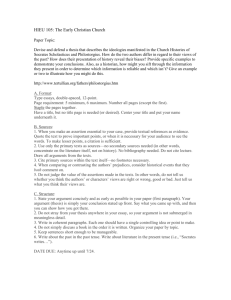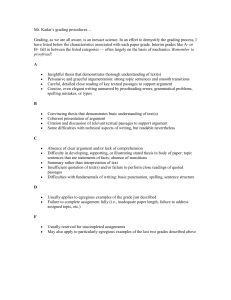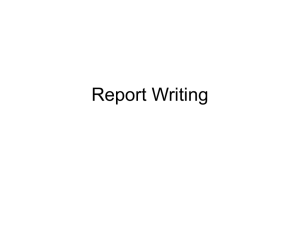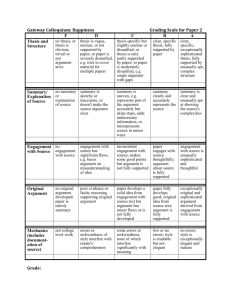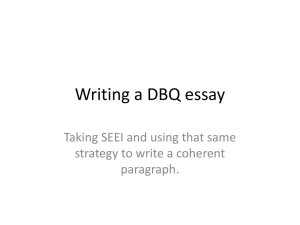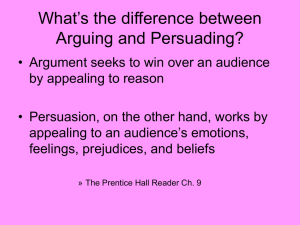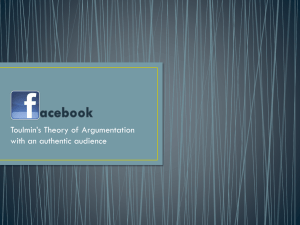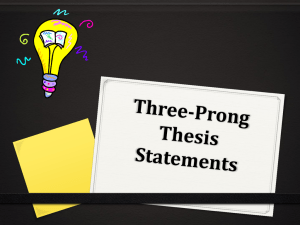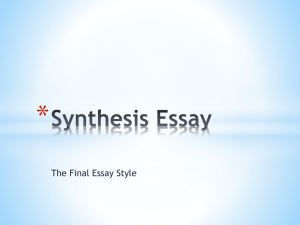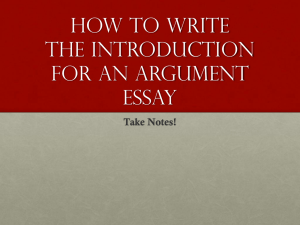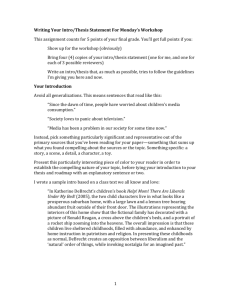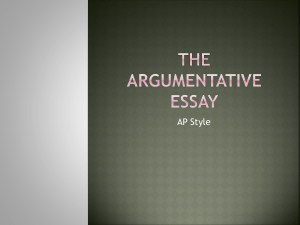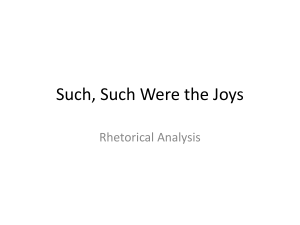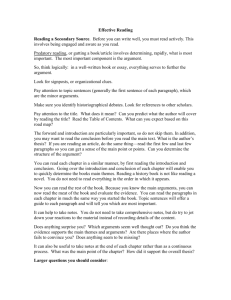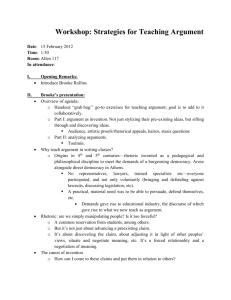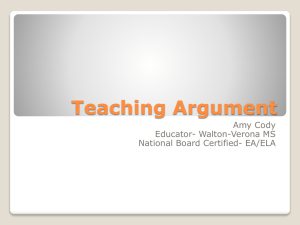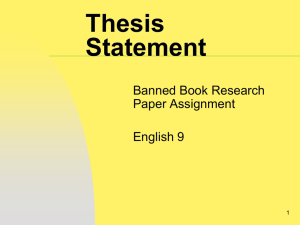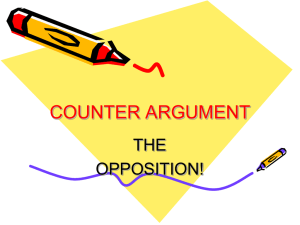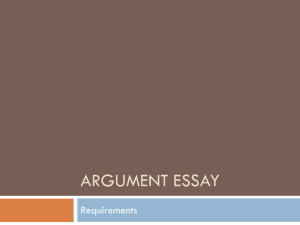The Funnel Introduction Purpose: To draw your reader into your
advertisement
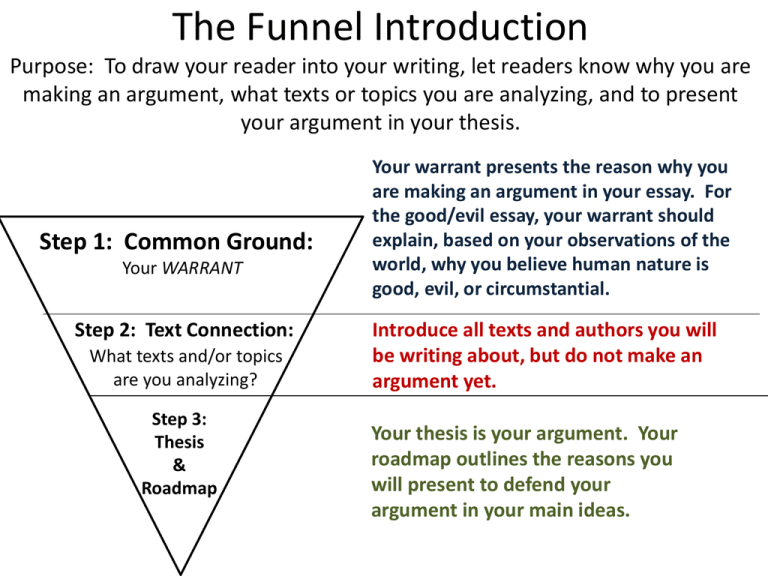
The Funnel Introduction Purpose: To draw your reader into your writing, let readers know why you are making an argument, what texts or topics you are analyzing, and to present your argument in your thesis. Step 1: Common Ground: Your WARRANT Step 2: Text Connection: What texts and/or topics are you analyzing? Step 3: Thesis & Roadmap Your warrant presents the reason why you are making an argument in your essay. For the good/evil essay, your warrant should explain, based on your observations of the world, why you believe human nature is good, evil, or circumstantial. Introduce all texts and authors you will be writing about, but do not make an argument yet. Your thesis is your argument. Your roadmap outlines the reasons you will present to defend your argument in your main ideas. Example: Step 1: Common Ground: Step 2: Text Connection: Step 3: Thesis & Roadmap Human goodness is displayed by the majority of people on earth each day. Human goodness is shown when a mother sacrifices her desires for a child's need, when a friend listens to a friend, and when one acquaintance thanks another for caring. Human goodness can be grand or simple, but the majority of human action shows the natural propensity for goodness in humanity. Intimate interactions in William Golding’s novel, Lord of the Flies, LeAlan Jones and Lloyd Newman’s nonfiction account in Our America, and Art Spiegelman’s MAUS also explore both major and minor acts of human kindness. Humans are inherently good, and this is a quality that is born into most humans. In literature, natural human goodness is demonstrated through Piggy's automatic, unquestioning concern with the well-being of his peers in Lord of the Flies, through the positive example LeAlan Jones and Lloyd Newman set through their work in the Ida B. Wells housing project, and through the way Vladek sacrifices his own safety even in the midst of the holocaust to protect his wife, Anja in Maus.
